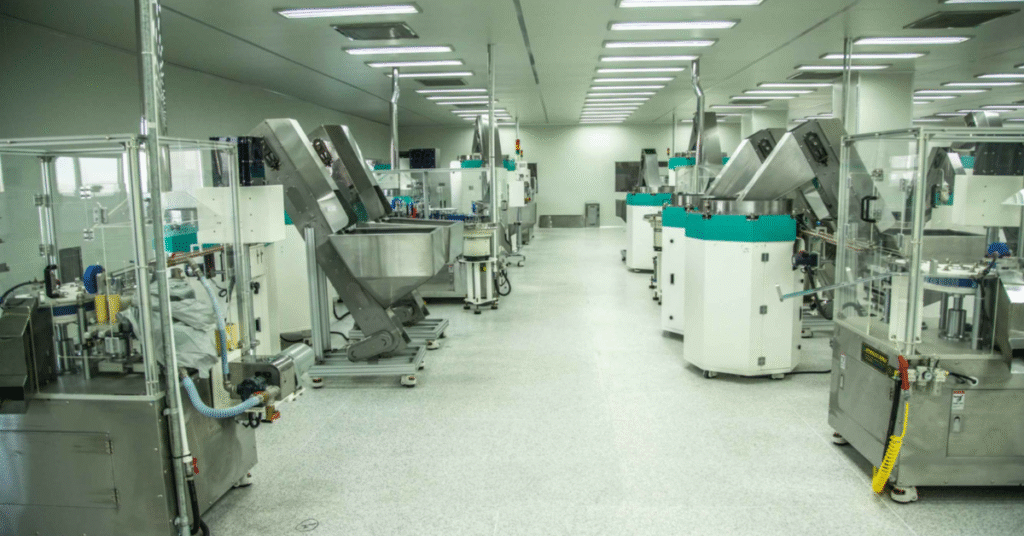5 Key Industries that Benefit from Pipeline Pigging Products
Cost-effectiveness, sustainability, and efficiency are top concerns for all manufacturing sectors in the modern world. Pipeline pigging products are one technological advancement that has completely changed how businesses operate liquid transfer systems. Businesses can recover valuable products, cut waste, and maintain cleaner pipelines with less downtime thanks to these cutting-edge solutions.
However, pigging isn’t limited to a single kind of business. In actuality, it is essential to many industries that produce, process, or transport liquid materials. To demonstrate why pigging has become a crucial investment for contemporary manufacturers, we will examine five major industries that stand to gain the most from pipeline pigging products.
1. Food and Beverage Industry
One of the largest industries that benefits from pigging technology is the food and beverage business. Fruit juice, soft drinks, sauces, dairy products, and alcoholic beverages are just a few of the high-volume liquids that producers deal with using extensive pipeline systems.
Remaining liquids are left in the pipes each time production moves from one product to another. This remaining product would typically be flushed out and thrown away. Businesses can ensure that almost 99% of the product is used by using pipeline pigging products to force the remaining liquid out of the pipeline and collect it.
The importance of pigging in food and drink:
- Maximises the recovery of products (such as syrups, apple juice, orange juice etc).
- Lowers the chance of contamination, maintaining food safety and cleanliness.
- Reduces water use while washing.
- Reduces waste of raw materials, saving money.
For example, instead of squandering thousands of litres of mango juice, a juice factory moving from mango to apple juice can employ pigging to recover the residual mango juice. In addition to cutting expenses, this advances sustainability objectives, which are becoming more and more significant in consumer-driven marketplaces.
2. Cosmetics and Personal Care Industry
Liquid and semi-liquid formulations, including lotions, creams, shampoos, conditioners, gels, and serums, are essential to the cosmetics and personal care sector. Since these materials are frequently thick and sticky, recovering them from pipelines is more challenging.
Manufacturers would squander a lot of costly products during batch changes if pigging wasn’t used. Because expensive chemicals are included in many cosmetic compositions, even a slight loss might result in significant financial expenses.
Pigging in the production of cosmetics has the following advantages:
- Effectively recovers high-quality components and final goods.
- Keeps compositions consistent and of high quality.
- Minimises downtime when switching out products.
- Reduces the use of water and cleaning agents.
Pigging, for instance, allows a skincare manufacturer to save litres of product when altering face cream formulations. The recovered product can be used straight in packaging, which will save money and help the environment.

3. Petrochemical and Lubricants Industry
Oils, fuels, greases, and other liquid goods that are frequently costly and dangerous to handle are dealt with by the petrochemical and lubricants industry. These compounds have a tendency to adhere to pipeline walls due to their sticky or viscous character, which results in significant product loss and expensive cleaning procedures.
Manufacturers may effectively push out leftover oil or lubricant with pipeline pigging products, guaranteeing maximum recovery and maintaining pipeline safety and cleanliness. In large-scale operations, when even a small proportion of recovered product can result in significant cost savings, pigging is particularly beneficial.
The importance of pigging for lubricants and petrochemicals:
- Recovers valuable goods such as gasoline, oils, and lubricants.
- Minimises contamination between batches of different products.
- Reduces the amount of harsh solvents used for cleaning.
- Increases operational effectiveness and safety.
Pigging, for instance, can be used to collect surplus product when an oil maker switches from one grade of lubricant to another, minimising waste and guaranteeing purity for the subsequent batch.
Currently, this blog’s five main industries are:
- The Food and Beverages Sector
- Personal Care and Cosmetics Sector
- Industry of Lubricants and Petrochemicals
- Chemicals, Paints, and Coatings Industry
- Industry of Cleaning and Domestic Goods
4. Paints, Coatings, and Chemicals Industry
Pigging might not be the first thing that springs to mind when you think of paints, coatings, and industrial chemicals. But this is one of the industries where pigging has the biggest effect.
Paints, varnishes, solvents, and adhesives are examples of viscous substances that adhere to pipelines. Traditionally, cleaning them out involves using a lot of water or chemicals, which results in waste and significant disposal expenses.
Manufacturers can recover unused paint or chemical products and put them straight into packaging by employing pigging. This minimises the impact on the environment, boosts profitability, and lessens the need for unnecessary cleaning products.
Pigging in paints and chemicals has the following benefits:
- Minimises the use of water and solvents for cleaning.
- Greatly reduces the cost of disposing of waste.
- Retrieves valuable chemical products.
- Decreases downtime and increases production efficiency.
Pigging out the initial batch, for instance, allows a coating manufacturer to change colours with less waste. This results in quicker product changes and less waste of raw materials.
5. Household and Cleaning Products Industry
Pigging technology also helps household products, including dishwashing liquids, detergents, liquid soaps, disinfectants, and surface cleaners. Since these goods are frequently manufactured in large quantities, every penny counts towards cost reductions.
Manufacturing companies of cleaning products must regularly transition between batches, just like the food, cosmetic, and chemical industries. Instead of flushing out and wasting the residual product inside the pipes, pigging enables them to recover it.
Advantages for producers of cleaning supplies:
- Recovers large amounts of liquids and detergents.
- Minimises the use of chemicals and water for pipeline cleaning.
- Reduces trash to support sustainability objectives.
- Maintains flexible and effective production lines.
When a producer decides to convert from lemon-scented dishwashing liquid to lavender, for instance, they can utilize pigging to preserve the leftover lemon variety rather than throwing it away. This reduces the impact on the environment while simultaneously increasing money.
Beyond these Industries
Although we’ve focused on five key industries, pipeline pigging products are also utilised in a wide range of other industries, including:
- Operations of wineries and breweries (for wine, spirits, and beer)
- Lubricants and petrochemicals (for oils and fuels)
- Chemicals used in agriculture (such as liquid insecticides and fertilisers)
Pigging can improve sustainability, save costs, and increase efficiency anywhere liquid passes through pipelines.
Final Thoughts
In a time when sustainability and efficiency are of the utmost importance, pipeline pigging products are revolutionising manufacturing across the globe. Pigging guarantees greater product recovery, less waste, cleaner pipelines, and cost savings for anything from food and beverages to cosmetics, medications, chemicals, and household items.
Pigging is a must for companies trying to remain competitive, not just an optional enhancement. Industries can increase revenue and support global sustainability goals by implementing this technology.

